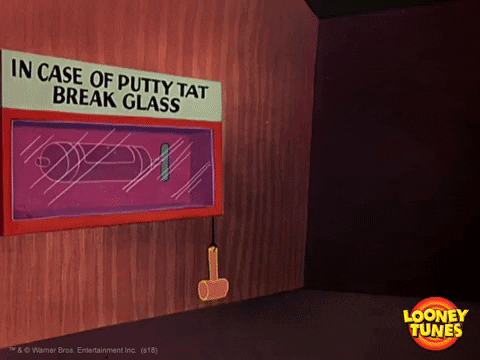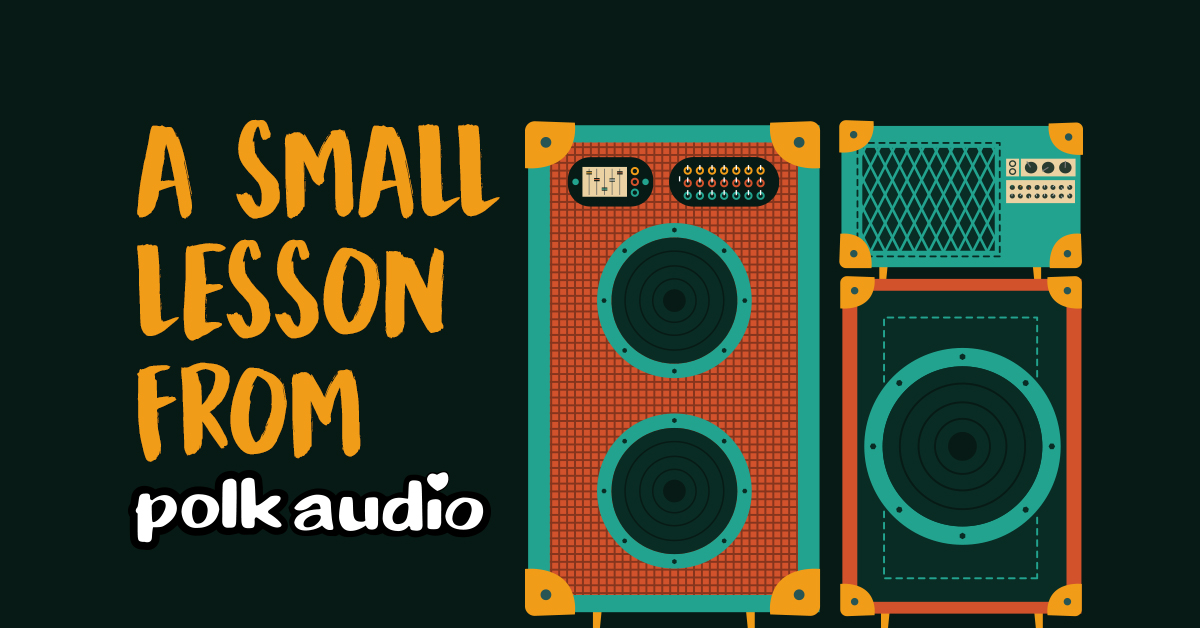Back in the 80s and 90s, Polk Audio was considered one of the better high-end loudspeaker companies in the market. This was an era when home stereos and home entertainment were a big deal, audiophiles flourished, and a killer setup was an aspirational goal for many.🎯
 My dad was one of the first employees for Polk, maybe actually the first…
My dad was one of the first employees for Polk, maybe actually the first…
So growing up, I was super familiar with the company…
And while I was never insanely “into” loudspeakers…
It was cool being able to go to places like Circuit City (now defunct) and other electronics dealers and seeing their speakers displayed on the shelves.🤩
Polk Audio was sold to a company called DEI in 2006, and has more-or-less faded in relevance since then…
Although, occasionally I’ll be at an AirBNB, or a random person’s house, and see a Polk loudspeaker tucked away in a corner…
And it always brings a smile to my face, since it makes me think of my dad.😊
Well anyways, several of the old-school Polk employees have a Facebook Group where they keep in touch…
And at some point, I got added, which makes sense given that my dad was with the company from the beginning.
Today I saw that someone had shared one of their in-store promotional cutout ads in the group…
On it you’ll see Matthew Polk, the company’s founder…
And it’s advertising their SRT speakers, which were by all accounts one of their best products ever.👌
What I love looking at this cutout, besides the fact that it makes me think of my dad (who died in 2011), is the direct response elements.
I never really paid attention to their ads in the past…🤔
So looking at this one, it’s almost “surprising” to me that they used DR to sell their product…
Though I’m not sure why.
Anyways, I’m not saying this copy is the “greatest thing ever”…
But I do appreciate some particular elements:
1. Credibility. Your “headline” is a review from a critic of an industry-standard magazine.
 2. The WARNING box. This is the most DR part of the whole “ad.” It almost looks like the warning label you’d see on a cigarette box. It catches your attention, and I love the way it’s basically saying “warning, this system may be TOO powerful.” That’s a sexy challenge to the prospect…it makes the consumer want to put it to the test and see if it’s B.S. or not.
2. The WARNING box. This is the most DR part of the whole “ad.” It almost looks like the warning label you’d see on a cigarette box. It catches your attention, and I love the way it’s basically saying “warning, this system may be TOO powerful.” That’s a sexy challenge to the prospect…it makes the consumer want to put it to the test and see if it’s B.S. or not.
You’ll see this today with all kinds of products too: from weight loss pills saying “warning, if you lose TOO much weight, stop taking XYZ supplement.” Or, even more famously, with Viagra. The whole “if you have an erection lasting more than 4 hours, call a doctor” line was a part of their ads, not just because having an erection for that long is dangerous, but also because it implied an incredible level of efficacy. For a guy who hadn’t been able to get it up or keep it up for years, to suddenly be told “you might be able to keep it up for so long that it becomes a problem” was a challenge they were more than happy to accept.
3. Background story. While I don’t think this is wildly compelling, it’s interesting to see how the creator of this ad decided to include the origin story of the product. There is an additional level of implied credibility here too, though.
This was the personal project for Matt, who we can assume, knows a whole lot about loudspeakers. He wanted to create the ultimate system for his personal media room, and we can assume that a successful businessman like Matt only wanted the best. And from there, this quest grew into an ambitious research product and an amazing product that’s not being offered to consumers.
4. And then it ends with another credibility component in the term of a second quote from the same journalist. This one is more descriptive of the technical aspects. I think these are in place to speak to the audiophiles, the folks who are interested in specific metrics. So the first quote spoke more to the emotional “experience” of the product, whereas this one speaks to those thinkers who are more digital.
It’s a good example of speaking to the heart first and the brain second. That’s an important maxim when writing copy, and the implication is that emotion trumps logic when selling, which is true. Yet it’s also true that while E > L, L is still a necessary element as well.
Anyways, I just wanted to share. I hadn’t really seen any ads for the company before, and writing about it makes me think of my dad, who I always miss. Hopefully, y’all get some value out of this post as well.🙏
– SPG
P.S. This post originally came from an email I sent to my private list. If you want to see more stuff like this from me, you can apply to join my list using this link

0 Comments